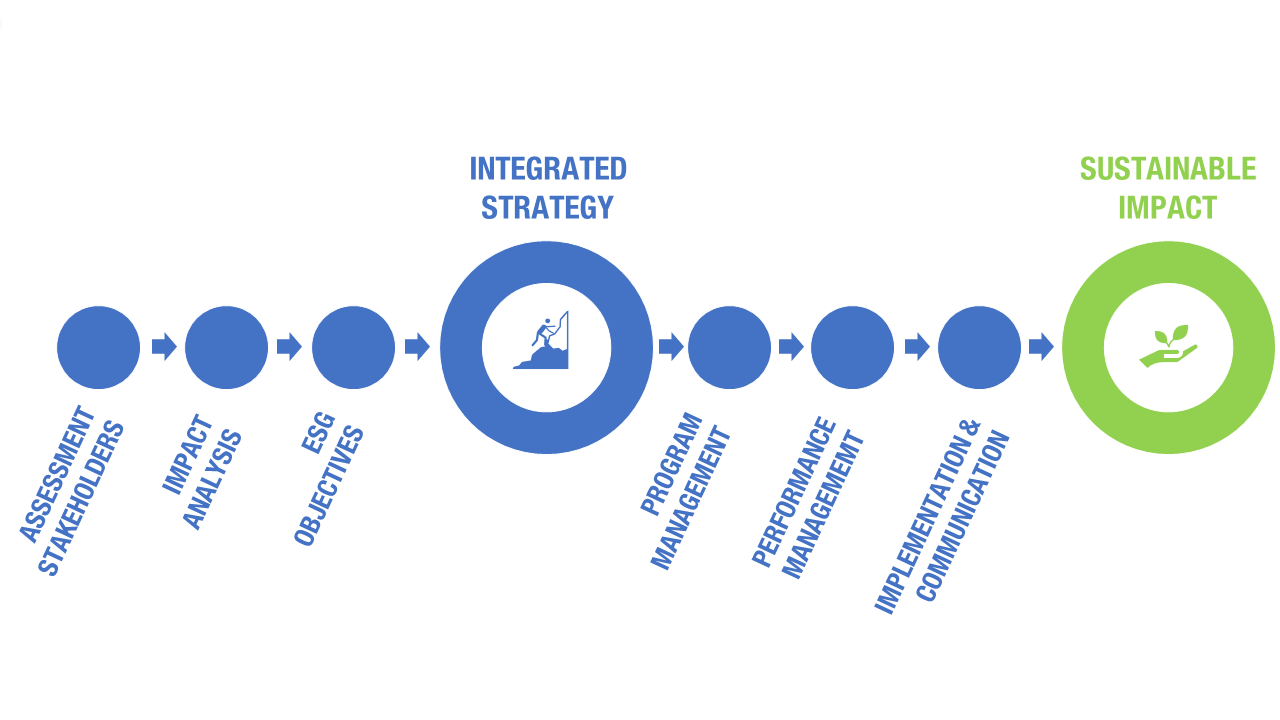Sustainability is no longer a nice-to-have feature for (family) businesses . These days, it is a tough precondition. The extent of your sustainable practices determines the future viability of your company. Transitioning from shareholder value to stakeholder value may be a foregone conclusion. In practice, however, it is no easy task.
Charting a new course in an arena that is full of conflict, shifting interests and wide-ranging topics is challenging. New ways of thinking are vital as companies shift from classic cost-accounting to an integrated approach that encompasses social costs. Consequently, true pricing is gaining momentum. But when it comes to sustainability, we still lack a level playing field. That gives rise to added uncertainty when making strategic choices.
Environmental, Social and Governance (ESG) and Sustainable Development Goals (SDGs)
More and more companies are adopting ESG within their strategy. ESG stands for Environmental, Social and Governance, the three central pillars of sustainability. These pillars are often expanded using Sustainable Development Goals (SDGs), which make the benefits of sustainable business practices even more tangible:
- Stronger competitive position and enhanced corporate image
- Improved ability to attract, retain and inspire employees
- Financial benefits not just in the long term but also the short:
o Cost savings (e.g. by reducing waste, energy usage and waste charges)
o Turnover growth (e.g. by improving market positioning and optimising co-products) - Added attraction for capital and investors
- Ability to reduce risks and to comply with rules and regulations
- Increased availability of raw materials

Our role
We know that business owners and managers subscribe to both the challenges and advantages of sustainability. Nevertheless, they struggle daily with the transition to sustainable practices that are measurable and impactful . Proposals, partnerships, processes and other elements need revising. Vision and decisiveness are essential if you want to create a new structure.
Our approach
At Gwynt, we understand the challenges and recognise the opportunities facing family businesses like yours. Our pragmatic approach to sustainability produces an integrated corporate strategy that uses ESG as a starting point. That strategy is then turned into a persuasive business plan that has sound reasoning, financial underpinning and SDGs.
We can also help you implement smart adaptations throughout the organisation to get the best out of your people. Our team, which is fully acquainted with ESG standards, applies a personal and customised approach to ensure real breakthroughs. That is why we stay involved until you get the results you want. And that is what it is all about: making a sustainable impact together.

